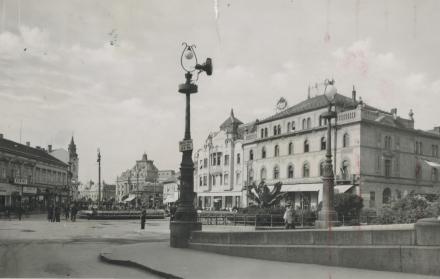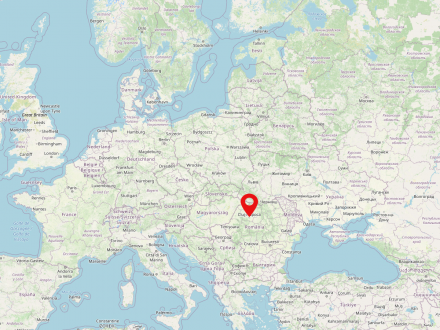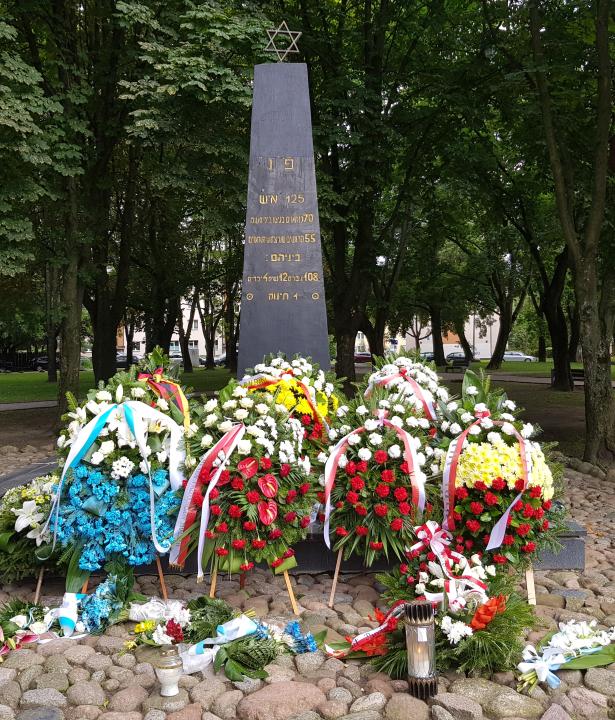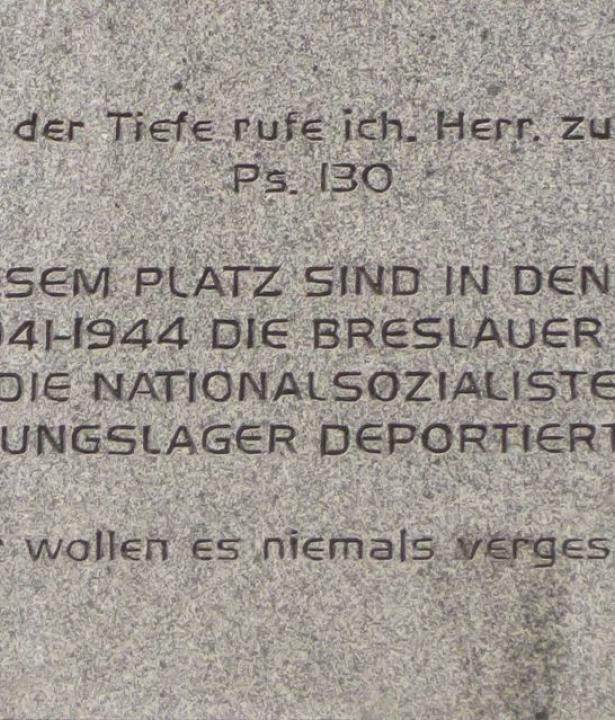This article sheds light on some facets of the life of the philosopher Ernő Gáll, who as a Jew, a communist, and a Hungarian was both politically persecuted and a perpetrator. A committed intellectual, he acted as a mediator between different political factions and hostile ethnic groups throughout his life. In doing so, he developed an ethic of dignity and responsibility and coined the phrase "the dignity of individual character," which also has relevance for today's debates around the issue of identity.
Upbringing, adolescence, and education in Romania 1917 - 1940
Text
The biography of the Hungarian-Jewish philosopher Ernő Gáll exemplifies the political hopes, ideological disappointments, and (Jewish) suffering of an entire East-Central European generation that set out, after 1945, to establish the ultimate just society on earth.1 Gáll was born in in eastern Hungary on April 4, 1917. He came from a wealthy Hungarian Jewish family. As a lawyer, his father was closely affiliated with the cause of social democracy, but he also supported communist activists. In 1920, large parts of Eastern Hungary, including Great Vardein, became part of Romania as a result of the
Trianon Peace Treaty
Trianon Peace Treaty
The Trianon Peace Treaty is one of the so-called Paris Suburb Treaties. The treaty regulated the territorial cessions of Hungary, which lost about 70% of its territory and 66% of its population. Hungary signed the treaty under protest on 04 June 1920.
. Gáll attended the "Jewish Lyceum" in his hometown, where classes were held in Hungarian. His grandparents introduced him to the Jewish religion, he learned Hebrew, and celebrated his bar mitzvah in 1930. In the midst of the world economic crisis, which also led to great unemployment in Romania, he turned to communism in 1931. This meant leaving the Jewish faith and the severing his ties with the Jewish community. After completing his high school leaving exams (in Romanian) in 1934, Gáll studied law in . He was a member of the illegal youth organization of the Romanian Communist Party and printed its leaflets in his apartment. During these years, a network of Jewish, Hungarian and Romanian communists formed, from which he would later benefit on several occasions. By the mid-1930s, he claimed to have found himself in a position “sans nationality”, a state of communist internationalism, which he hoped would solve all problems related to ethnicity and national affiliation. He completed his law degree by correspondence due to financial reasons and went on to study philosophy, over the course of which he gradually became closer to several Hungarian communists, such as Edgár Balogh (1906-1996), who drew his attention to the problems of Hungarian peasants and workers, specifically related to ethnicity. Under Balogh's influence, Gáll freed himself from his communist internationalism and developed a receptivity to ethnic concerns. Balogh also provided him with the opportunity to publish in Korunk ("Our Age"), the communist journal with the largest circulation and reach in the Hungarian-speaking world during the interwar period, with contributors such as Georg Lukács. Gáll wrote about the Nazi danger and the need for reconciliation among Central European nations.
Oradea
deu. Großwardein, hun. Nagyvárad, slk. Veľký Varadín, lat. Magnovaradinum
Cluj-Napoca
ron. Cluj, hun. Kolozsvár, lat. Claudiopolis, lat. Claudianopolis
Cluj-Napoca (German: Klausenburg, Hungarian: Kolozsvár) is a major city in the Transylvanian county of Cluj in northwestern Romania. It is the second largest city in Romania with about 324,000 inhabitants.
The Second World War (1939-1945)
Text
During the Second World War, Gáll suffered a period of persecution, but also found solidarity among other communists. On August 30, 1940, with the support of the "Third Reich," Hungary succeeded in regaining part of the territories ceded to Romania in 1920. This would come to be known as the
"Second Vienna Award."
"Second Vienna Award."
The Second Vienna Award involved the cession of Romanian territories to Hungary, such as the northern and eastern parts of Transylvania, which had belonged to Romania since 1920 and had a Hungarian population. The Romanian side called the award of 30 August 1940 the Vienna Dictate.
Decades later, Gáll expressed contradictory views about his behavior at that time: On the one hand, he claimed to have demonstrated against the award together with his comrades, but on the other hand, he recalled witnessing the invasion of the Hungarian imperial administrator Miklós Horthy with tears in his eyes. In the northern Hungarian region of Transylvania, Jews and communists suffered a period of persecution, which Gáll and his comrades did not escape. Although he was able to finish his philosophy studies in 1941, he then went into hiding to escape the fate of many of his comrades who were arrested and murdered. Nevertheless, he followed the draft order for labor service, which the Hungarian government had introduced for Jewish men, in order to spare his parents problems. For over two years he worked on construction sites and in road building. In the fall of 1944, he managed to abscond from the labor service in Budapest, but his attempt to go into hiding in the capital failed. He was arrested and transported to Buchenwald, where he received a red and yellow triangle on his uniform indicating that he was both a Jewish and political prisoner. By March 1945, malnutrition and hard physical labor had weakened his body to such an extent that he would have died were it not for a comrade from Klausenburg who recognized him and brought him into the international communist network at the camp. He was cared for by a Romanian communist who was a doctor, received additional food rations, and established contact with the communist resistance. This ideological solidarity in times of hardship and persecution was to continue to shape Gáll's thinking into the 1980s. In later life, he repeatedly recalled this experience as proof that mutual support was possible even under inhumane circumstances. After the liberation of the camp (11. 4. 1945) he returned to Romania.
Gáll, the Stalinist
Text
Romania was occupied by Soviet troops in 1945, so the possibility of establishing a socialist society was obvious. From August 1945, Gáll worked in Cluj-Napoca for a Hungarian-language communist daily newspaper, of which he became editor-in-chief the following year. He continued to advocate dogmatic Stalinist positions until about 1953/56. In 1949 he moved to the Hungarian University and became a lecturer in Marxism and Leninism. Gáll's Stalinism meant judging everything from the point of view of the Soviet Union and official doctrine, proceeding from the assumption that the capitalist world was “evil” and could only cause misery, and writing laudatory articles on Stalin, Shdanov, and Soviet science in general. He repeatedly attacked well-known bourgeois scholars of the Hungarian university, pillorying them for not (yet) fully embracing the Marxist worldview. He also criticized Hungarian intellectuals and institutions, calling them fascist and accusing them of not having judged politics from the class point of view in the interwar period. His attacks contributed to the closure of a number of Hungarian minority institutions by the Romanian authorities. Decades later, he himself spoke of being seized by an "ethnic neutrality" and becoming a blind stooge of an ideology. He did not even oppose the arrest of his old friend Balogh in 1949 (and a number of other comrades) and accepted the show trial given to them, convinced that the party was right. He later described how he searched his memory for explanations until Balogh's arrest seemed understandable and correct. His Jewishness played no role at all in this phase of his life: even in the (few) articles he wrote about the camps, the issue of Jewish suffering was hardly mentioned. His focus was always on the persecution of the communists, their heroic resistance, and the struggle of the Soviet Union for the liberation of the people from the yoke of Nazism. Gáll's disillusionment began after 1954 and can be traced back to the release of his friends and their reports, as well as to the death, in 1954, of his mentor, who had been a Marxist literary theorist and succumbed to the late effects of a Stalinist hounding. Nikita Khrushchev's secret speech (1956) was also discussed among the Hungarian minority, but the fermenting processes in neighboring Hungary were also followed closely. While the Romanian authorities wanted to reassure the minority in the face of the Hungarian uprising, Gáll, as prorector of the university, insisted on explaining the uprising as a reaction to Hungarian Stalinism. At the same time, he exerted a calming influence on his students so that they would not provide the authorities with a pretext for reprisals. After the uprising, he was relieved of his rector's post and had to exercise a degree of self-criticism. However, at the beginning of 1957 he was given the post of editor-in-chief of the monthly magazine Korunk, which had been revived and which he edited until his retirement in 1984.


Ernő Gáll in Moscow 1967. Gáll Ernő Levelek 1949-2000. Kolozsvár-Budapest 2009, CC BY-NC-ND 4.0
Ernő Gáll in Moscow 1967. Gáll Ernő Levelek 1949-2000. Kolozsvár-Budapest 2009, CC BY-NC-ND 4.0
Farewell to Dogmatism
Text
Although Marxist terminology continued to dominate Gáll's thinking after 1956, by the early 1960s, there were signs in the articles he wrote that he was becoming more open-minded. He was receptive to a number of thinkers whom, a decade earlier, he would have condemned as bourgeois and stooges of capitalism (Saint-Exupéry, Sartre, Kierkegaard). He also emphasized the need for dialogue, welcomed currents of reformed Marxism (Ernst Fischer), and increasingly championed unorthodox positions within Marxism. He spent a month in West Germany in 1967 on a DAAD scholarship and met people such as Ralf Dahrendorf in Konstanz and even Ernst Bloch. The many conversations he had with sociologists and philosophers in university towns (Konstanz, Heidelberg, Frankfurt, etc.) and his attendance at university events on the eve of the 1968 movement showed him a lively democratic culture of discussion. The reality of everyday life and work in West Germany made it clear to him that the Western world was not afflicted by agony. Workers were by no means being endlessly exploited; on the contrary, they were able to participate in the technical achievements of their society. In contrast, Romanian society had already experienced another wave of terror in the late 1950s as a belated reaction to the uprising in Hungary, during which the Hungarian minority became the focus of persecutions and death sentences.
Nicolae Ceauşescu
Nicolae Ceauşescu
Ceauşescu (1918-1989) was appointed First Secretary of the Central Committee of the Romanian Workers' Party in 1965. After a period of liberalisation and opening up (1965-1970), he continued to acquire more and more functions. He pursued a cult of personality, the suppression of opposition within the party and an economic autarky that led to the impoverishment of the country. In 1989, he was executed in a coup d'état within the party, which was also fought on the streets and resulted in many deaths.
, the new man at the party helm since 1965, copied Mao's "cultural revolution" in 1971, which meant the introduction of a series of restrictions, bans, and clampdowns. The Hungarian minority was particularly affected by these measures, as their culture and contact with Hungarians suffered under the bans. Gáll's departure from his dogmatic views can thus be put down to several factors, including the intellectual influence of Western thinkers, his experience of everyday Western life, and the emerging bleak realities of the Romanian dictatorship.
Dealing with the Holocaust and the "dignity of individual character"
Text
The liberation from Marxist terminology enabled Gáll, who now taught ethics rather than Marxism at the university, to develop his own views and terminology. Concepts such as "dignity," "responsibility," "self-knowledge," "obligation," and "hope" became the main focus of his thinking. As early as 1974, after a visit to the Buchenwald memorial, he wrote a widely acclaimed essay, the "Ettersberger Grübeleien." In it, he asked what code of ethics could be formulated in the wake of the horrors of the Holocaust and contrasted the alienated, faceless and undignified “mass person” envisioned by the concentration camps with a human individual who defies all the adverse circumstances of their time and insists on preserving their dignity. In the second half of the 1970s, he developed the expression “the dignity of individual character” in reaction to the fact that a self-determined life and the preservation of Hungarian culture and traditions were becoming increasingly difficult in socialist Romania. According to Gáll, the cultivation of an individual’s identity has a worthy status in terms of natural law and human rights: every person, and therefore also every collectivity, possesses per se the right to preserve their own idiosyncratic character. The dignity of the human being and the dignity of her or his (specific) character are inseparable from each other, and in order to be able to preserve one’s individual’s dignity, one must therefore have the right to cultivate all the peculiarities that belong to it (language, customs, traditions, ways of life, etc.). By expressing these ideas, Gáll gave the Hungarian minority an important theoretical support, with the aim of strengthening the self-assertion and the moral support of the community.
Ernő Gáll's hybrid identities
Text
Gáll's biography is fascinating because of the diversity and hybridity of his identities. After leaving Judaism, he devoted himself to communist internationalism. The Hungarian authorities made him a Jew again in 1940. He could not escape this affiliation even through a mock baptism. After 1945, his commitment to the construction of socialist society took on almost religious characteristics. Ethnic or religious concerns, however, did not interest him during his Stalinist phase. Several Hungarians nevertheless perceived him as a Jew who, as a functionary of the Romanian communists, agitated against Hungarian institutions on behalf of the state. While Gáll was (anti-Semitically) marginalized in this way, his thinking continued to be dominated by an ethnic indifference. He published at this time at least as much in Romanian as in Hungarian and considered mediation between the two nations one of his main tasks. A change did not occur until the 1970s. As editor-in-chief of the traditional communist magazine Korunk, he was caught in the crossfire of the vastly differing views of his acquaintances: While his former Jewish classmates accused him of being too close to Hungarians, of employing anti-Semites, even of allowing colleagues to publish anti-Semitic articles, and of suppressing the issue of Jewish suffering in his essay "Ettersberger Grübeleien," his old friend Balogh, who was his deputy on the Korunk editorial board, said that he had had to save the magazine from Gáll's cosmopolitanism, modernism and Westernism. At the same time, through his work as editor-in-chief of one of the very few Hungarian periodicals, Gáll was committed to the survival and modernization of Hungarian cultural life. In the 1970s, however, he came to the (self-)realization that he was a "person on the edge" of several cultures. After all, he was considered a "Hungarian nationalist" in the eyes of the Romanian secret service because of his involvement as editor-in-chief and was therefore wiretapped and shadowed. Yet even in the darkest days of the Ceauşescu dictatorship, Gáll did not give up his efforts to publicize Hungarian and Central European thinkers in Romanian institutions in order to counter nationalist demarcations. However, in the second half of the 1970s, the focus of his publications began to shift to Hungarian-language publications in Romania and Hungary. Around 1980, another development in Gáll's thinking began, which can be characterized as a cautious return to his Jewish roots. This was evidenced by the fact that he publicly commented several times on his Jewish origins and upbringing (something he had previously not done), but also that he was now grappling with these topics in his writing, primarily diary entries and letters. But, in the increasingly nationalistic climate of the 1980s and 1990s, he did not make public his growing sympathy for "Jewish" problems and issues or the country of Israel. His interest reached its peak in 1991, when he was allowed to visit Israel in the summer and admire the country's achievements. He did not, however, find his way back to the faith of his Jewish ancestors (unlike some of his Communist comrades). He saw it as his intellectual responsibility as a survivor of the Holocaust, as a Jew and as a Hungarian intellectual to voice his opposition to the neo-fascist tendencies in Romania as well as in Hungary. He continued to publish on the importance of thinking about the Holocaust. At the same time, he critically confronted his own Stalinist phase, asking himself several times how he (and his generation) could have become so dogmatic and so blind to the injustices. He continued to preserve his social awareness and sensibility, and during the last years of his life remained committed to social democratic ideas. Ernő Gáll died on May 17, 2000.
Text
English translation: William Connor








